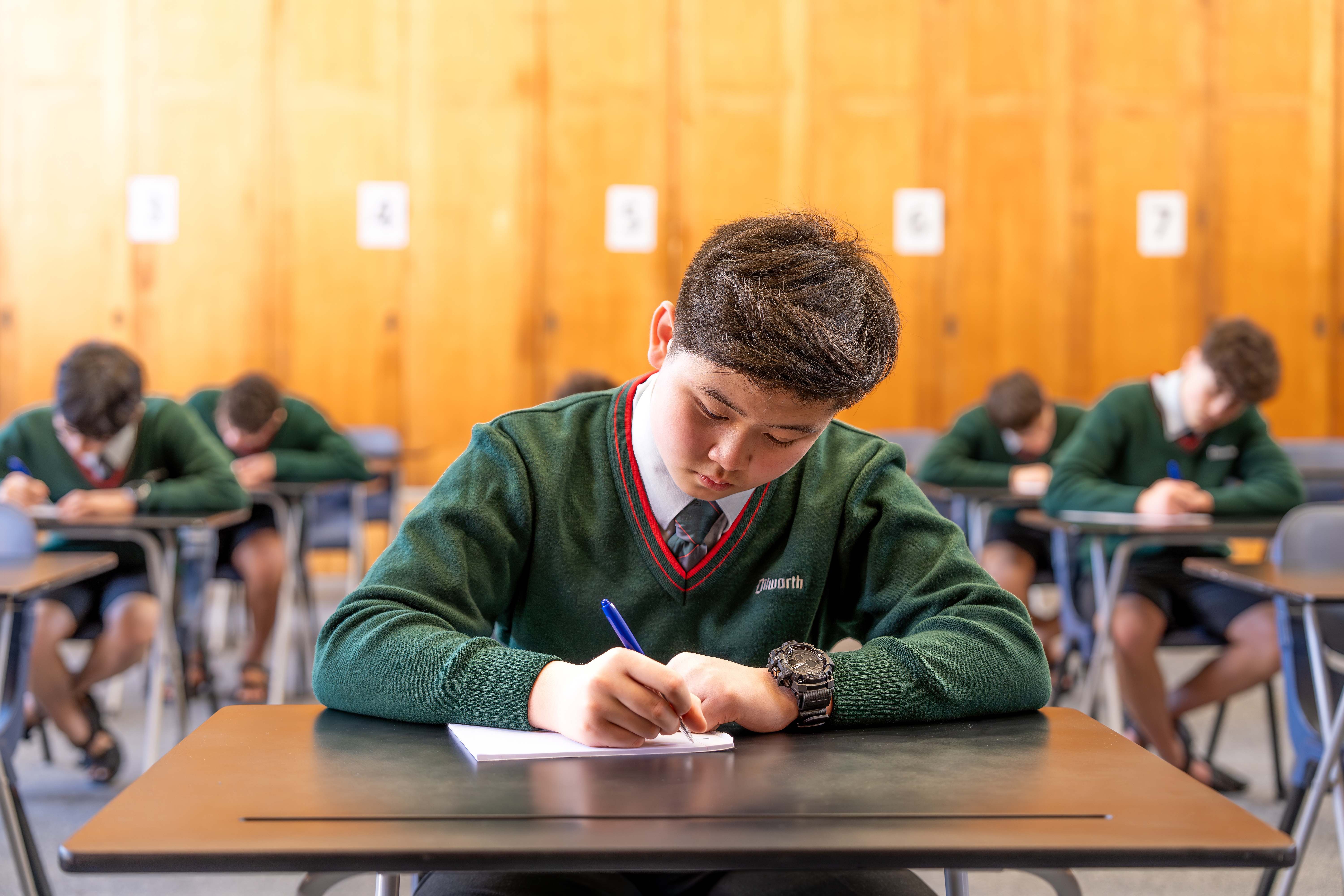“The whole curriculum has been written so there is a pattern, a consistent theme of knowledge and learning concepts, to ensure a clear pathway for learners all the way through from Year Seven to Thirteen.”
Madeline Thompson, Director of Curriculum
When it comes to student learning in New Zealand, Dilworth stands alone on the educational landscape on account of its comprehensive, modern, and unique curriculum. The school’s model is made up of three distinct strands: an academic curriculum to develop student learning, Ako Puāwaitanga to assist students with understanding and tools to enhance their wellbeing, and a programme of Learning in the Outdoors to develop emotional resilience and wider life skills. Dilworth has made an enormous investment of time, work and resources over several years in developing this broad and relevant curriculum. It’s been specifically designed and integrated together to give students a superb, all-round education, and their best possible chance of thriving in life.

Learning is taken extremely seriously at Dilworth, with the school employing exceptional teaching talent, as well as a range of support people in specialist positions to help students reach their potential. Madeline Thompson, Director of Curriculum, says the school has full-time subject specialists who teach across both the junior and senior campuses. “Having specialist teachers in Years Seven and Eight is quite rare in the intermediate space” she says. “It means we can make sure younger students get the best instruction in literacy, numeracy and the sciences. The whole curriculum has been written so there is a coherence with a consistent theme of knowledge and learning concepts, to ensure a clear pathway for learners all the way through from Year Seven to Thirteen.”
Dilworth’s recent academic results have been outstanding, with a near 100% pass rate for NCEA. That’s much higher than most equivalent boys’ schools and places Dilworth near the top of the national statistics. The school also offers its own Diploma in place of NCEA Level One in Year 11. Madeline says, “We’ve designed our own programme, which we know is much better preparation for NCEA Level Two and beyond. We taught it for the first time in 2024 and it’s been hugely successful, our students have really enjoyed it, and our teachers too, as they can actually focus on teaching, especially the foundational academic knowledge, this enables deeper learning for our students.”
Dilworth’s academic curriculum is incredibly comprehensive across both junior and senior campuses, with all students also attending a structured programme of Learning in the Outdoors at Dilworth’s specialist Mangatāwhiri campus.
Key learning areas for Year Seven and Eight students include English, Maths, Languages, Performing Arts, Science, Social Science, Technology, Visual Arts, and Physical Education. Senior school subjects cover the same key learning areas but branch out into more specialist subjects. Science, for example, breaks into Biology, Chemistry, Earth and Space, and Physics. All students from Year Seven to Thirteen learn financial literacy, and Year Seven to Ten learn a musical instrument. There are also courses offered, specifically designed to prepare students who are looking to transition out of the school and into one of the trades or services.
Dilworth’s smaller class sizes, along with dedicated specialist subject teachers, allows for more meaningful interaction between students and staff, and leads to better engagement and academic results. Laptops are provided for students as part of their fully paid scholarship, with Year Seven to Ten working on Chromebooks, before moving to MacBooks at Year Eleven. Madeline: “The curriculum involves a lot of technology, and we up-skill the students on how to use the hardware and software where we need to, so they can fully participate in learning and life.”
The school also provides for gifted and talented students by providing extension activities in their areas of specialty. “We accelerate our students by a year, or two years if they’re particularly gifted, and we also do everything we can to provide extension and enrichment for them as well. For example, in the arts and music, that would involve extracurricular activities like the symphony orchestra or the choir, and exposure to senior artists or musicians. We try and expand their learning by enriching them more widely rather than just acceleration and we also provide a full suite of Scholarship subjects.”
Conversely, there is also tremendous support for students who might be struggling in any area. “I think this is one of the areas where Dilworth is really exceptional. At the junior campus we have a full-time Learning Support Teacher which is a remarkable resource. We also have an extremely well qualified Learning Support Teacher at the senior campus from Year Nine, and we have a full-time learning assistant, who is a specialist teacher that goes into classes and helps students. If a student is struggling with maths for example, that teacher will go into class and assist during the lesson. Our students get an enormous amount of support, whether they’re struggling with learning in general, in a particular subject, or with learning behaviours.”
One of the keys to students achieving successful academic outcomes is engaging parents and caregivers. To help parents better understand how students are tracking, Dilworth sends reports by email, or through its portal, as well as weekly reports. “The weekly reports act as a kind of scorecard on how they’re going. We’re always trying to improve our information flow and communication with parents, because we’re all part of the students’ learning together. Giving them the ability to view upcoming assessments, information about the curriculum and what they’re learning, and the progress their son is making, is vital. The reports mean parents can see and be aware if there’s any sudden dip in performance, and we can work together to fix any issues.”
Parents are also encouraged to communicate with staff or visit the school to discuss their young man’s progress. “We are always trying to increase the number of opportunities for parents and caregivers to come in, talk with us, and hear how their son is going.”